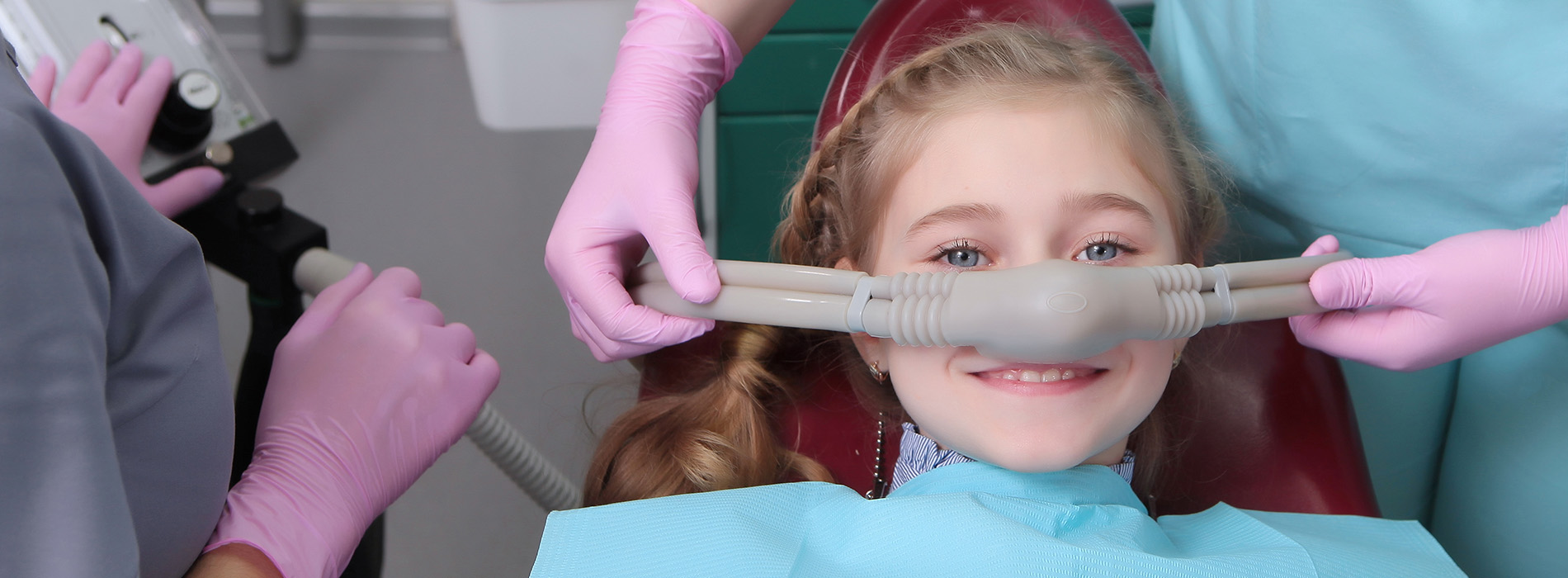
At the office of Cabot Children's Dentistry, we're committed to providing gentle, friendly, and comprehensive dental care to kids. We believe that good oral health is vital for a child's development, and we're here to help every step of the way.
Sedation dentistry offers children with anxiety about going to the dentist or fears about a specific dental procedure the opportunity to have a stress-free and more comfortable experience. By utilizing safe and controlled sedation techniques for dental procedures, a child can undergo dental work in a more relaxed state. With dental sedation a child typically feels more at ease post-operatively as well, having less stress associated with the procedure.
For children with dental anxiety or phobia, strong gag reflexes, medical conditions, special needs, or unable to sit comfortably for dental work, varying levels of carefully monitored sedation can induce a calming state of relaxation. Depending on the level of anxiety the child is experiencing and the nature of the procedure getting performed, our office will recommend the most appropriate option in dental sedation.
N2O (Nitrous oxide), also known as "laughing gas," is a mild sedative used to reduce anxiety and enable a child to enjoy improved relaxation during a procedure. Safely and painlessly delivered in combination with oxygen, nitrous oxide is inhaled through a small and comfortable mask placed over the nose. Administered for the procedure's duration and then turned off once it comes to an end, the effects wear off very quickly.
Oral sedation means that your child is given a sedative medication to take by mouth shortly before their appointment. As provided in liquid form, this medication allows your child to relax by the time the dental procedure gets underway. As indicated, we will give you specific instructions about limiting food and drink intake before the appointment and keeping an eye on your child as the medication wears off.
When for reasons of age, special needs, level of anxiety, or extensive procedures, a deeper level of sedation may be required. IV Sedation and general anesthesia enable a pediatric dentist to perform all the needed dental treatment efficiently and safely without causing the patient excessive stress or exceeding their ability to sit for treatment. A trained anesthesiologist will administer and monitor the type and dosage of medication needed to ensure safety and the proper level of sedation throughout the procedure.
Sedation dentistry offers patients with general anxiety or fears about a dental procedure the opportunity to have a more comfortable and stress-free experience. By utilizing safe and controlled sedation techniques, the patient is eased into a state of complete relaxation before the procedure. This approach eliminates discomfort, pain, and preoperative anxiety, and typically makes patients feel more at ease post-operatively, as they have little or no memory of the actual moment-to-moment procedure.
Local anesthesia involves an injection directly into or close to the area where a procedure is being performed. While it eliminates any sensation of pain in the targeted area, it does not affect your state of mind or level of anxiety. When a patient receives sedation, additional medications to ease anxiety and promote relaxation are employed in advance of local anesthesia. In this way, both the stress and discomfort associated with a procedure are eliminated. Sedation can be administered in a variety of forms based upon patient needs and the recommendations of the dentist or dental anesthesiologist.
Choosing the most appropriate method of sedation for a procedure depends on a variety of factors such as a patient's medical history and their level of anxiety. Dental sedation can come in the form of nitrous oxide sedation, oral conscious sedation, and IV sedation. Certain patients receiving comprehensive treatment or undergoing a complex surgical procedure may require general anesthesia in a hospital setting.
Nitrous oxide, or "laughing gas," is a mild sedative, which is inhaled through a small mask over the nose. A standard in dental sedation for decades, the effects of nitrous oxide are almost immediate and wear off quickly once your procedure is completed.
Oral sedation involves the prescription of an oral medication prior to your appointment. Taken at the recommended time before your visit, oral sedation allows you to feel fully relaxed by the time you're ready for your procedure. With oral sedation, it's necessary to plan on having an escort to and from your dentist's office.
IV Sedation is administered intravenously, or directly into a vein. It is typically indicated when a deeper state of sedation is required. Your dentist will provide you with specific instructions before your visit, and require that you have an escort for the trip home from your appointment.